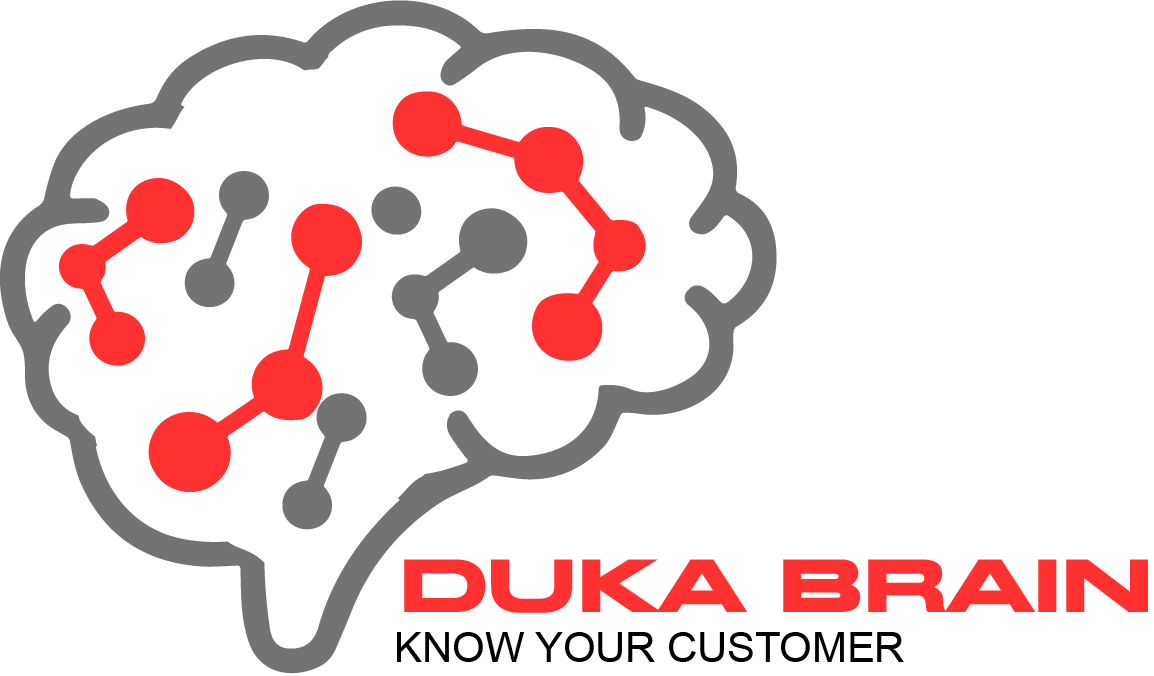Introduction: The New Frontier of Brand Perception by AI
E-commerce brands are entering a dramatic new chapter of digital marketing—one that may determine their place in a landscape increasingly dictated by artificial intelligence. Recent insights from Search Engine Land have revealed an urgent and pressing challenge: how AI—especially the large language models (LLMs) powering everything from search engines to chatbots—formulates perceptions of your brand before information even hits your future customers. This is not a subtle adjustment; it’s a seismic shift in the mechanisms of brand visibility, trust, and ultimately, profitability.
For e-commerce leaders, the core message is clear: how AI “sees” your brand is rapidly becoming as critical as how your consumers perceive it. Visibility in AI-powered search, how your products are recommended by algorithms, or the trust signals built into AI-generated summaries about your business—these factors all rest on this invisible judgment. Ignore it and watch AI misrepresent, dilute, or simply pass over your brand for others more in tune with its logic.
This post will cut through the hype, laying out what the AI perception challenge means, why it matters urgently, and how DukaBrain’s end-to-end solutions empower brands to align their digital aura with the “mind” of today’s AI.
Why AI’s Perception of Your Brand Matters Now
The rise of LLMs like GPT-4, Google Gemini, and OpenAI’s latest turbo models is no longer news—it’s a new baseline in every digital interaction. AI systems now:
- Pull the strings on what shoppers see first in search.
- Curate product recommendations and ads across retail platforms.
- Drive the scripts in voice assistants, customer chats, and automated help desks.
The result? AI-generated content and algorithmic selections increasingly shape buyer journeys. It is these pattern-eating systems—not just your website design or ad copy—that influence if and when you earn a customer’s trust, attention, and click.
Immediate impacts on e-commerce brands include:
- Brand trust at machine speed: AI summaries establish instant first impressions, good or bad, much faster than human-to-human curation ever could.
- Discoverability dictated by data quality: Poor or inconsistent brand data means you’ll get lost in the “AI shuffle”—dropped from featured snippets, recommendation slots, or even basic organic visibility.
- Automated customer moments: AI agents, from search to chatbots, are the new first-line reps. Their perception of your brand is what they present to customers. If their understanding is off, you hemorrhage trust and conversions in seconds.
Urgent trends pushing this shift:
- AI search algorithms (Google SGE, Bing, Amazon) now crowdsource and summarize brand info from diverse sources—accuracy, relevance, and authority are table stakes.
- Automated voice commerce is reshaping “shopping moments,” often skipping brand cues that a human might notice.
- AI-driven recommendation engines—increasingly complex and opaque—use your brand data as a signal for who gets to “win” that vital suggestion slot.
If AI’s internal version of your story is mistaken, incomplete, or diluted, you surrender control at the moment it counts—when a buying decision is just a conversation or query away.
Understanding the AI Brand Perception Challenge: The "Perception Match Hurdle"
In Search Engine Land’s exploration of LLM challenges, a critical but under-acknowledged barrier is highlighted: the “perception match hurdle.” In simple terms,
- LLMs must correctly map search queries, questions, or prompts to the right brand or entity—before spreading relevant information “fanout” to the wider digital ecosystem.
- This mapping is neither instant nor guaranteed. Brands not clearly “matched” risk being omitted, misattributed, or poorly summarized.
For e-commerce brands, this means:
- Brand dilution: If AI can’t make a precise connection between your brand and its defining products, value props, or values, you become generic—indistinguishable from hundreds of competitors.
- Lost conversions: Inaccurate, confusing, or incomplete AI representations sabotage the critical micro-moments when shoppers are looking for reasons to trust and engage. Every cycle of error means lost sales—often invisible until revenue dips.
Why does this gap exist?
- Dispersed, inconsistent brand messages across the web.
- Outdated or unstructured data in product catalogs, about pages, and social profiles.
- Lack of schema markup or structured metadata, leaving AI “guessing” at the facts.
Overcoming the perception match hurdle is now essential if your goal is for AI-driven word-of-mouth, recommendations, and search discovery to work in your favor.
How DukaBrain Helps E-Commerce Brands Align Their Brand with AI Perception
DukaBrain is uniquely positioned to close the AI perception gap—transforming your digital presence so it becomes AI-literate and AI-favored. We’ve engineered solutions to ensure your brand’s story, data, and customer value are unmistakable to AI.
Our Core Offerings:
- AI-driven content optimization: We audit and rebuild your product, brand, and content presence specifically for how AI models index, understand, and surface data.
- Data-driven brand narrative development: Using proprietary tools and analytics, we unify your brand message—across site copy, product feeds, social profiles, and reviews—creating a single, consistent narrative even machines can’t misinterpret.
- Adaptive marketing built for AI: We constantly monitor changes in how AIs interpret and recommend brands so your strategy always adapts to the latest algorithmic shifts.
How We Reduce the Perception Match Gap:
- Standardizing data structures and keywords aligned with LLM recognition patterns.
- Adding schema markup and structured data, speaking AI’s “native language.”
- Ensuring your brand’s USPs, trust factors, and product distinctions are encoded everywhere AI looks for signals.
This isn’t traditional SEO. It’s building tomorrow’s “brand equity” for AI’s eyes and logic—rather than only for humans.
Evidence and Best Practices for Enhancing AI Brand Perception
The impact of correctly aligning brand data and messaging for AI is not speculative; early adopters are seeing outsized returns.
Case Example 1: Improved Search Ranking
A global fashion retailer partnered with DukaBrain to standardize their product data and add AI-readable schema. The result?
- Featured snippet placements doubled in 3 months.
- 27% lift in organic search-driven cart additions.
Case Example 2: Increased Engagement from AI Recommendations
By harmonizing brand voice and product attributes across their catalog, an electronics retailer saw:
- An 18% jump in “You Might Also Like” placements in Amazon and Google Shopping.
- 22% higher click-to-purchase rates on AI-driven recommendations.
Best Practices to Improve Your Brand’s AI Perception
- Standardize your brand data everywhere: Use the same naming conventions, product categories, and brand narrative across every channel—website, product feeds, social, marketplaces.
- Structure your data for clarity: Leverage schema markup (e.g., Product, Organization, Review schemas) to help AI instantly “read” and contextualize your core assets.
- Create AI-friendly content: Rewrite your most important webpages and product listings for both authority and clarity, using the vocabulary and facts LLMs operate on.
- Monitor and adapt: Regularly audit how AI systems are representing your brand in snippets, FAQs, and answer boxes.
Quick-Glance Benefits of AI-Ready Branding
- Enhanced discoverability in AI-powered search and recommendations.
- Stronger brand trust signals, reducing buyer hesitation.
- Increased conversion rates from all AI-influenced customer touchpoints.
Looking Ahead: Preparing Your Brand for an AI-Driven Future
The AI revolution in e-commerce is just beginning. As LLMs and their offspring grow smarter, the bar for brand clarity keeps rising. Brands who view “AI brand management” as a one-time project will be left behind.
Key trends to expect:
- Greater AI autonomy in decision-making: Soon, AIs will autonomously negotiate with each other on behalf of customers—meaning only the most visible, trusted brands will get picked.
- Faster cycles of change: AI’s models, algorithms, and data sources now update at unprecedented speed. Manual brand management simply can’t keep up.
- Algorithmic brand preference: As AI adapts to user signals, it will start showing unconscious biases—amplifying brands it “understands best.”
How to stay competitive:
- Invest in AI interpretable, structured data as part of your core marketing operations.
- Proactively track how AI agents present, summarize, and recommend your brand.
- Make ongoing alignment with AI logic and user preference a central discipline—not an afterthought.
Call to Action: Get Ahead of AI with DukaBrain
The question is no longer “Will AI affect my e-commerce brand?”—it’s how it will redefine your story, trust, and revenue from this moment forward.
Are you ready to see how AI currently “perceives” your brand? Do you have a strategy for closing the gap before your competitors do?
Now’s the moment:
- Assess your AI reputation and perception—don’t assume, verify.
- Book a consultation with DukaBrain to receive a roadmap for AI brand optimization tailored to your business.
- Let us help you reclaim and reshape your narrative for the era where algorithms guide every step of the customer journey.
DukaBrain has been at the forefront of AI-driven marketing since the first LLMs hit the public web. Our mission is to ensure that your brand’s essence, authority, and data are not just preserved, but amplified in the age of intelligent algorithms.
Don’t let AI misinterpret what makes your business exceptional. Start building a brand futureproofed for the AI-powered world—today.

